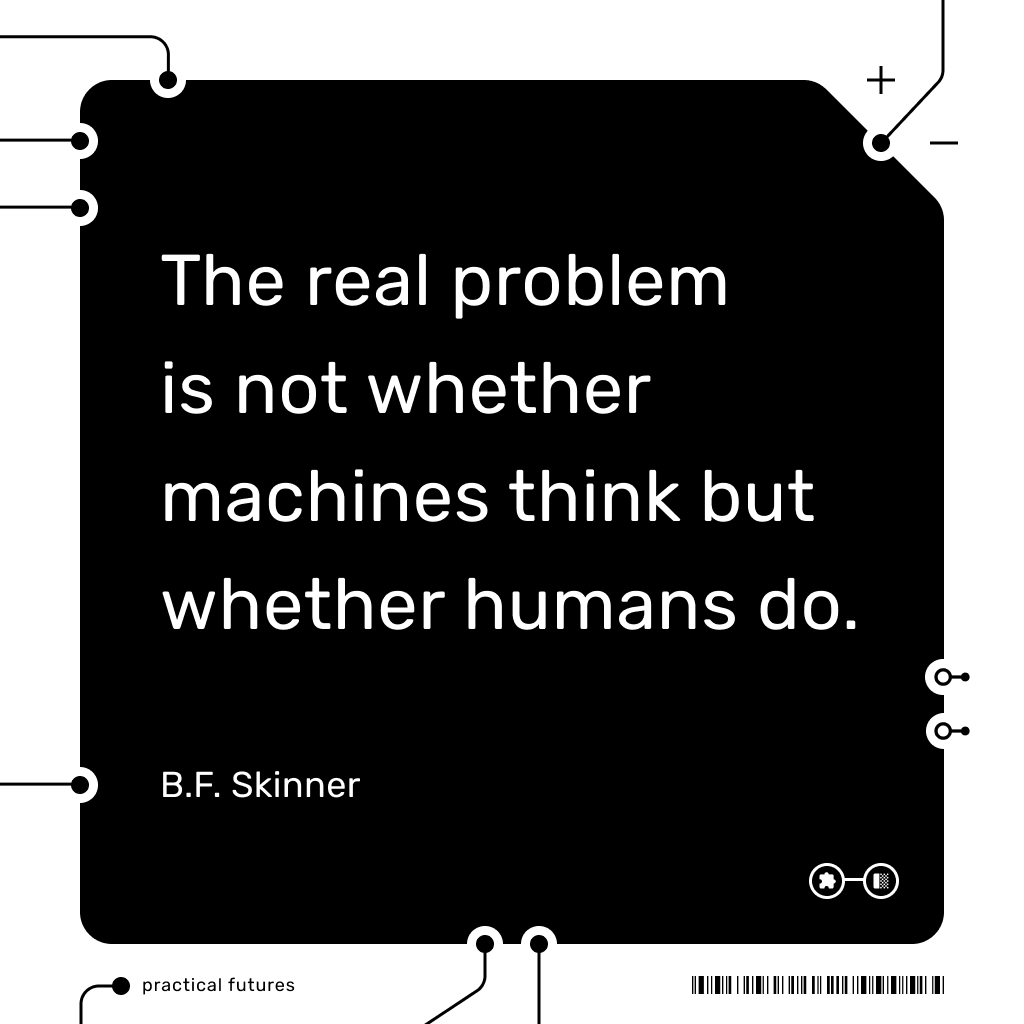She glances at her partner, hunched as his fingers trace patterns across the house's ambient control panel.
- Can you walk the dog? It’s your turn.
- Let me just finish tuning this up.
- What’s that?
- You know, those new agentic devices that learn to work for their users, not just forcing users to learn to operate the device? Plug and play to get to know you, then tweak and personalise for maximum value.
- Yhm.
The holographic sliders morph into emotional spectrum bars as he adjusts the doorbell's personality matrix.
- See, the learning period ended, so I tried to set it up.
- And what did it learn about us?
- The doorbell says we should go out more often.
- Well, it’s not wrong.
- Have you seen my calendar recently?
- If it takes care of the kids? Why not?
- Ok, less agency, no life advice.
- 10% less, and it’s 40% agentic now.
- What about accepting packages and mail on our behalf?
- That’s at 50%, with humour, camera access, visitor mood detection…
- Maybe we can stick with fifty? Can we always tune it up?
- I think so. Are we interested in humour?
- Yes.
- Yes, how much?
- At 50%, it only expresses humour towards the house members. Over 60%, it cracks jokes with our guests, deliveries, etc.
- Is it going to chat with other machines?
- I dunno. Maybe?
- I’m not sure how I should feel about delivery bots chatting with our door on our porch.
- Let’s start with 60%.
- Sixty it is. This house has space for only one king of dad jokes.
- Don’t turn our house into a comedy club.
- Too late. Budget authorisation level?
- Budget. For a doorbell? Now, you must be joking.
- Yup, at 40-60%, it’s only for pre-approved expenses like delivery acceptance or emergencies. Ok, medical advice?
- What does a doorbell have to do with my health?
- It can detect many things just by analysing your walking patterns.
- You know who won't be comfortable with a doorbell that checks health data? My mother.
- You think so?
He strikes a funny pose and emphasises his voice.
- Email is like a magical letter that delivers itself.
- Stop techsplaining.
- What? It’s relatability inflation. The easier it is to imagine using something, the easier it is to start, but old things doing new stuff are always crazy.
- Remember how Bix found your plushies and got frustrated when toys wouldn't answer her questions?
- Well, she was born expecting all things to think for themselves. AI is like electricity now. If something needs a power source, you can expect it to think for itself.
Drawn by their voices, the dog approaches and rubs against her legs. The step counter blinks on the pet’s collar. She glances at the wagging tail.
- How much longer?
- We’re done. It’s restarting now.
The doorbell chimes softly and says warmly.
- Welcome home.
They smile as she replies.
- You too.
He grabs the leash.
Hello Practical Futurists,
Welcome back from the future, where devices learn to work for their users, every home can read the room, and you can get unsolicited life advice at the door.
Hit the "Like" button at the top or bottom of this page to inspire others and help them discover the stories you've enjoyed.Great leaders practice experiencing the future, not just thinking about it. Like athletes visualizing their performance, they build vivid mental pictures of tomorrow to make better decisions today.
Our weekly workouts use futures thinking and product sci-fi to help you create a library of future memories - turning abstract possibilities into reference points that can inform your choices.
To spark your imagination, here's a thought to start with:
Let's make this future personal.
We'll start by connecting this story to your life, transforming abstract possibilities into memories you can use to navigate tomorrow's challenges.
Personal life reflection prompts:
1. If you could adjust the "agency level" of one device in your home, which would it be, and what percentage would you set it to? Why? 2. Imagine it is the first morning your home truly "knows" you: - What surprised you about how it adjusted to your routine? - Which small detail made you realize it really understood you? - What habit did it notice that you hadn't? - How did it feel to have your space anticipate your needs?
3. How would you handle disagreements between family members about AI personality settings in shared spaces?4. Create a memory of having introduced your smart home to visiting relatives: - Which feature made your parents uncomfortable? - What unexpectedly delighted them? - How did you explain the safety controls? - What moment helped them understand your choices?
5. Which 3 tasks in your life would benefit most from devices that learn your preferences rather than requiring you to learn theirs?6. Picture the day your first device gave you unexpected but useful advice: - What were you doing when it happened? - How did it deliver the suggestion? - Why did you decide to trust (or ignore) it? - How did this change your relationship with smart devices?
7. If your home's AI could develop its sense of humour, would you prefer it to match your style or challenge you with different perspectives?Good job!
Your future memory library now has some valuable personal references. Let's fire up your thinking to add some professional leadership moments.
How will you help others navigate this future? It's time to create those memories.
Professional life reflection prompts
1. What 3 leadership challenges might arise when managing both human and AI team members?2. Imagine having led a team meeting about agentic device standards: - What concerns did people raise? - How did you explain the balance of control? - What unexpected use case changed minds? - How did you set boundaries between helpful and intrusive?
3. How might "agentic devices" transform customer service in your industry? What levels of agency would be appropriate for different business functions?4. Picture training your first client on personality configuration: - What analogy helped them understand agency levels? - Which feature made them nervous? - How did you demonstrate the value? - What question you hadn’t considered before?
5. What 2 metrics would you use to evaluate the effectiveness of devices that learn from user behaviour versus those requiring users to learn their operation?6. Imagine the moment your industry standardized device personality metrics: - What prompted the change? - How did you adapt your products? - What unexpected benefit emerged? - How did it change customer expectations?
7. What operational challenges might arise when implementing systems that can make autonomous budget and resource allocation decisions?8. Picture explaining agentic devices to someone from 2025: - What example made it click for them? - Which modern concern made you laugh? - How did you describe the benefits? - What aspect was the hardest to explain?
9. What 2 policies would you establish regarding machine-to-machine communication in your workplace ecosystem?10. Name two leaders whose approach to integrating new technologies you admire. What makes their approach effective?You did amazing! Excellent work!
Today's memories join your growing library of future experiences.
Thank you for expanding your imagination with us. Leaders with bold ideas move our world forward.
Think bright, and see you soon.
Pawel Halicki
Make Practical Futures feel like yours in 2025
Take the two-minute readers’ survey. Your feedback is invaluable.
Do you want stories like this in your inbox?
Join strategic imagination workouts that inspire change-makers in market-leading organisations, including Visa, Deloitte, Barclays, UEFA, Nielsen, Morgan Stanley, and many more.







